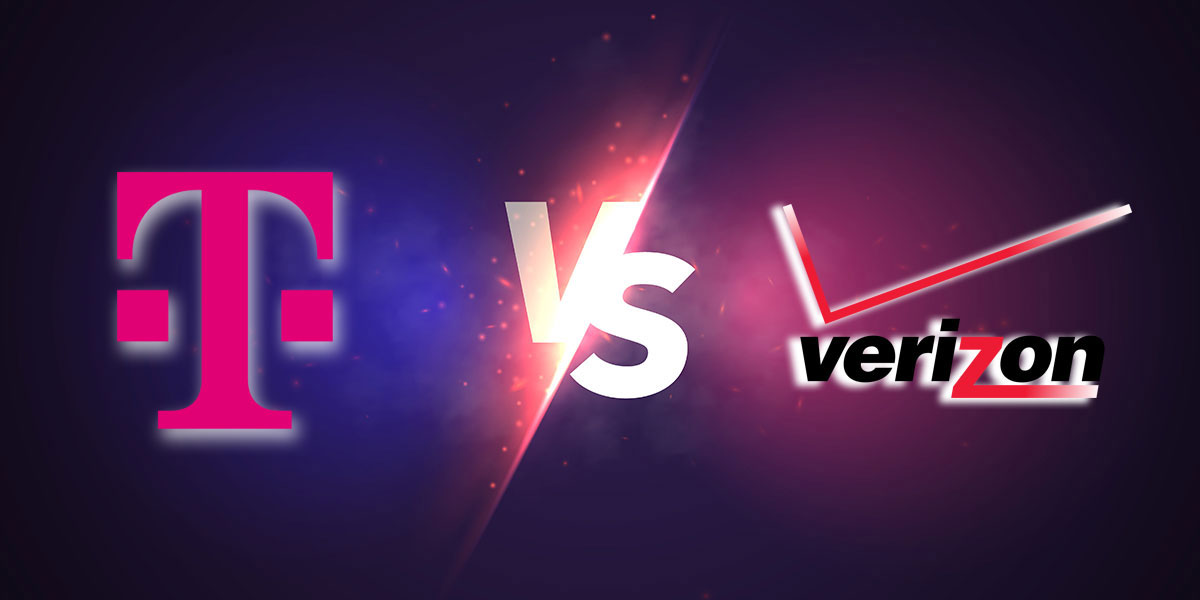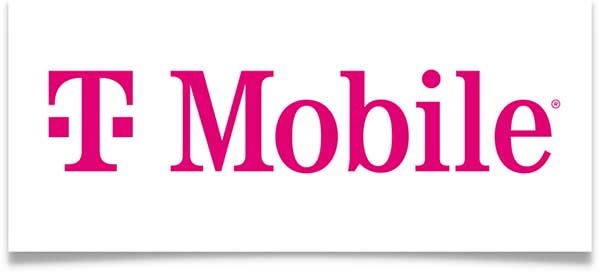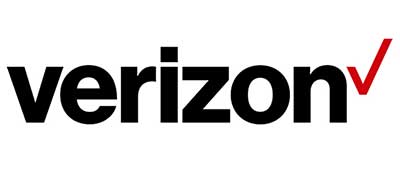T-Mobile Home Internet Vs Verizon Home Internet: Which is Best?

In today’s fast-paced world, having reliable and fast internet is no longer a luxury but a necessity. Many internet service providers offer different packages and plans that can be challenging to pick the right one that fits your needs.
T-Mobile and Verizon are two popular options for home internet service in the United States. In this article, we’ll compare T-Mobile home internet Vs Verizon home internet to assist you in deciding which one is right for you.
T-Mobile Home Internet and Verizon Home Internet offer high-speed internet connections, but they differ in terms of network coverage, plans, pricing, data caps, and other features.
We provide an in-depth analysis of each provider’s strengths and weaknesses to assist you in making an informed decision when choosing a home internet service provider.
So, keep reading to learn more!
T-Mobile Home Internet Vs Verizon Home Internet: Overview
T-Mobile Home Internet

T-Mobile Home Internet is a wireless broadband and one of the largest mobile network operators in the United States. It offers high-speed internet access and uses T-Mobile’s 4G LTE and 5G cellular networks to deliver internet service to customers’ homes.
T-Mobile Home Internet offers unlimited data with no data caps or throttling and has no annual contracts or hidden fees. The service comes with a router connecting to the T-Mobile network, and consumers can connect all their instruments to the router via Wi-Fi.
Overall, T-Mobile Home Internet offers a wireless broadband solution for customers who require high-speed internet access but may not have access to traditional wired services.
So, here you can read more T-mobile comparison guides with other popular ISPs, Like Tmobile Home Internet Vs Cox and TMobile Home Internet Vs Xfinity.
Verizon Home Internet

Verizon offers home internet services through its DSL, Fios, LTE, and 5G networks. It ensures fast speed and reliable connections to its customers.
DSL: Verizon’s DSL service provides Download speeds up to 15 Mbps, suitable for primary internet usages such as web browsing, emailing, and light streaming. DSL internet is available in more locations but typically provides slower speeds and may have data caps.
Fios: Verizon’s Fios internet service is a fiber-optic network that delivers faster speeds and more reliable connections than DSL. It offers download speeds up to 940 Mbps and uploads speed up to 880 Mbps, which makes it an excellent choice for heavy internet users and households with multiple devices. Verizon’s Fios internet service has limited availability but offers high-speed internet with low latency and no data caps.
4G LTE: Verizon’s LTE home internet has Verizon 4G LTE cellular network to connect to the internet in locations where no other Verizon broadband access like Fios, DSL, or 5G Home Internet. LTE Home Internet delivers download speeds of 25Mbps to 50Mbps with 4Mbps upload speed.
5G Home Internet: Verizon’s 5G Home Internet service has 5G wireless technology to deliver internet service to your home. It provides download speeds of up to 1 Gbps and is available in select cities.
Verizon also provides a range of internet equipment, including routers and modems, to assist consumers in setting up their home internet connections. Customers can choose to rent or buy this equipment from Verizon.
Also, here you can read more Verizon ISP comparison guides with Frontier Vs Verizon.
T-Mobile Home Internet Vs Verizon: In-Depth Comparison of Services
Tmobile and Verizon’s Features Comparison
T-Mobile Home Internet and Verizon Home Internet are two popular options for home internet service in the U.S. Here are some features of each service:
T-Mobile Home Internet:
Verizon Home Internet:
Both ISP’s Internet Speed Comparison
T-Mobile offers Download speeds up to 100 Mbps and Upload speeds up to 10 Mbps for its home internet service. Rates may vary, including the number of connected devices, network congestion, and distance from the nearest cell tower. T-Mobile also provides a “No Slowdowns Guarantee,” which means that your speed will not slow down even if you cross your monthly data allotment.
Verizon has different home internet plans with varying speeds. The fastest available plan is Verizon Fios Gigabit Connection, which provides download speeds up to 940 Mbps and upload speeds up to 880 Mbps. Other plans include Verizon Fios 400 Mbps, Verizon Fios 200 Mbps, and Verizon DSL, which delivers speeds up to 15 Mbps, depending on the area.
Plans and Pricing Deference
T-Mobile Home Internet:
| Plan | Download Speed | Upload Speed | Price/Month | Equipment Fee | Data Cap/Contract | Price Guarantee |
|---|---|---|---|---|---|---|
| T-Mobile Home Internet | 33-182 Mbps | 6-23 Mbps | $50 | No | No | Until you remain a customer |
Verizon Home Internet:
Verizon DSL:
| Plan | Download Speed | Upload Speed | Price/Month | Equipment Fee | Data Cap/Contract |
|---|---|---|---|---|---|
| High Speed Internet(DSL) | 1-15Mbps | 1 Mbps | $75 | $50 (one-time fee) | No |
Verizon Fios:
| Plans | Download Speed | Upload Speed | Price/Mo | Equipment Fee | Data Cap/Contract |
|---|---|---|---|---|---|
| Fios 300 | 300 Mbps | 300 Mbps | $50 | No | No |
| Fios 500 | 500 Mbps | 500 Mbps | $70 | No | No |
| Fios Gigabit Connection | 940 Mbps | 880 Mbps | $90 | No | No |
Verizon 4G LTE:
| Plan | Download Speed | Upload Speed | Price/Mo | Equipment Fee | Data Cap/ Contract |
|---|---|---|---|---|---|
| LTE Home Internet | 50 Mbps | 4 Mbps | $50 | No | No |
Verizon 5G Home Internet:
| Plans | Download Speed | Upload Speed | Price/Mo | Equipment Fee | Data Cap/ Contract | Price Guarantee |
|---|---|---|---|---|---|---|
| Verizon 5G Home | 85-300 Mbps | 10 Mbps | $50 | No | No | 2 Years |
| Verizon 5G Home Plus | 300-1000 Mbps | 50 Mbps | $70 | No | No | 3 Years |
T-Mobile & Verizon Coverage Area Comparison
T-Mobile Coverage Areas:
T-Mobile home internet is recently available in select areas of the United States, primarily in rural and underserved regions. The coverage area for T-Mobile home internet is constantly expanding. Some coverage areas for T-Mobile home internet are:
- Alabama
- Arkansas
- Connecticut
- Delaware
- Florida
- Georgia
- Idaho
- Indiana
- Iowa
- Kansas
- Kentucky
- Louisiana
- Maine
- Maryland
- Massachusetts
- Michigan
- Minnesota
- Mississippi
- Missouri
- Montana
- Nebraska
- Nevada
- New Hampshire
- New Jersey
- New Mexico
- New York
- North Carolina
- North Dakota
- Ohio
- Oklahoma
- Oregon
- Pennsylvania
- Rhode Island
- South Carolina
- South Dakota
- Tennessee
- Texas
- Utah
- Vermont
- Virginia
- Washington
- West Virginia
- Wisconsin
- Wyoming
Verizon Coverage Areas:
Verizon provides home internet services in many areas of the United States. Some examples of Verizon’s home internet coverage areas include:
- Verizon Fios is Verizon’s fiber-optic network that delivers high-speed internet, T.V and phone services. It is available in the Northeast, Mid-Atlantic, and West regions of the United States.
- Verizon 5G Home Internet is a wireless home internet service that uses Verizon’s 5G network. It is available in some cities in the Northeast, Mid-Atlantic, Midwest, and West regions of the United States.
- Verizon LTE Home Internet is a wireless home internet service that uses Verizon’s 4G LTE network. It is available in select rural areas across the United States.
Contracts
T-Mobile Home Internet delivers a month-to-month plan with no contract required. They provide promotions that require a one-year warranty.
On the other hand, Verizon Home Internet requires a two-year contract for their Fios plans. They also deliver a month-to-month plan or a one-year contract for some of their plans.
Installation and Equipment fees
T-Mobile Home Internet recently provided a 4G LTE-based home internet service without installation or equipment fees. You will need to buy the T-Mobile Home Internet Gateway for $50 upfront, which acts as the modem and router for the service. T-Mobile Home Internet monthly service fee is $60, which includes unlimited data usage with no data caps or speed throttling.
Verizon home internet offers several types of service, including DSL, fiber-optic, and 5G home internet. The installation and equipment fees for Verizon home internet can vary depending on the kind of service and your area. For example, Verizon’s Fios fiber-optic service installation fees range from $99 to $299. Equipment fees may also apply, with some plans offering a free router.
Data Caps
T-Mobile Home Internet has a monthly data cap of 50 G.B. G.B. for its base plan. It may offer higher data caps for specific plans or promotions. After reaching your data cap, your internet speeds may slow to 3G or 2G.
Verizon home internet offers a higher monthly data cap than T-Mobile that ranging from 400GB to unlimited data depending on the plan you choose
Customer Service
T-Mobile and Verizon are well-known I.S.P.s that offer home internet services to customers. Regarding customer service, both companies have received mixed reviews from customers.
T-Mobile’s customer service has a good reputation among some customers, particularly for its quick response times and helpfulness. However, other customers have reported issues with long wait times over the phone and difficulty resolving specific problems.
On the other hand, some customers have praised Verizon customer service representatives for being knowledgeable and helpful. In contrast, others have complained about their late response over the phone and in any difficult situation.
T-Mobile Vs Verizon Home Internet: Pros and Cons
T-Mobile and Verizon are two of the most popular wireless carriers in the United States, offering home internet services. Here are some of the pros and cons of each provider.
T-Mobile Home Internet
PROS
CONS
Verizon Home Internet:
PROS
CONS
T-Mobile Home Internet Vs Verizon Fios: Which is faster?
T-Mobile Home Internet has LTE technology to provide internet speeds of up to 50 Mbps, while Verizon Fios uses fiber optic technology to deliver rates ranging from 100 Mbps to 940 Mbps.
Regarding raw speed, Verizon Fios is relatively faster than T-Mobile Home Internet, especially for high-bandwidth activities like streaming video, downloading large files, and gaming.
It is essential to mark that T-Mobile Home Internet is available in more rural locations where traditional wired internet providers may not offer service. Verizon Fios is available in select areas of the nation where fiber optic infrastructure has been built.
However, if you live in a rural area or require a reliable internet connection for essential online activities, T-Mobile Home Internet may be a good choice. And if you prioritize speed and stay in a location where Verizon Fios is available, it may be worth considering.
However, the best option for you will depend on your demands and preferences. T-Mobile will be a better option. If you prioritize affordability and unlimited data, high-speed internet, and broader coverage, Verizon may be the better option despite the higher cost.
Conclusion
T-Mobile Home Internet and Verizon Home Internet both offer reliable and high-speed internet connectivity for residential customers. T-Mobile Home Internet uses 4G and 5G wireless technology to provide internet access, while Verizon Home Internet has fiber-optic and DSL technology.
T-Mobile’s Home Internet plan offers unlimited data with no throttling. In contrast, Verizon’s plan has a monthly data cap of 50 G.B. T-Mobile’s service is more accessible in rural locations. Still, it may not offer the same speed and consistency as Verizon’s wired services in urban areas.
Regarding pricing and data caps, T-Mobile offers a flat rate of $50 per month with no data cap, while Verizon delivers plans starting at $39.99 with data caps ranging from 400 GB to unlimited, depending on the plan. However, Verizon’s plans provide faster speeds and more reliable connections than T-Mobile’s wireless services.
Overall, the choice between T-Mobile Home Internet and Verizon Home Internet depends on your area, internet usage needs, budget, the plan you choose, and your specific requirements.
